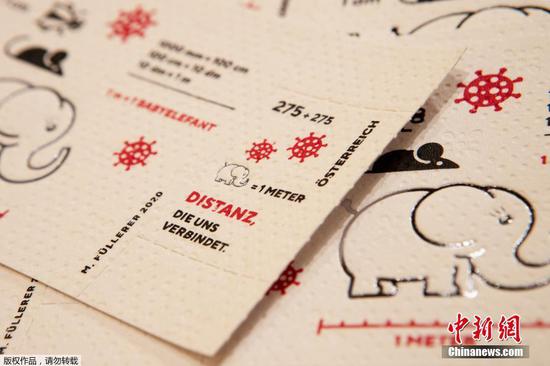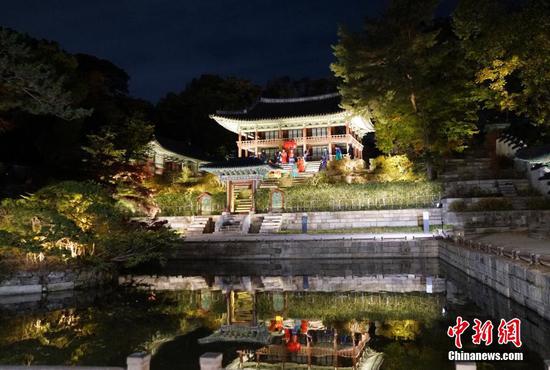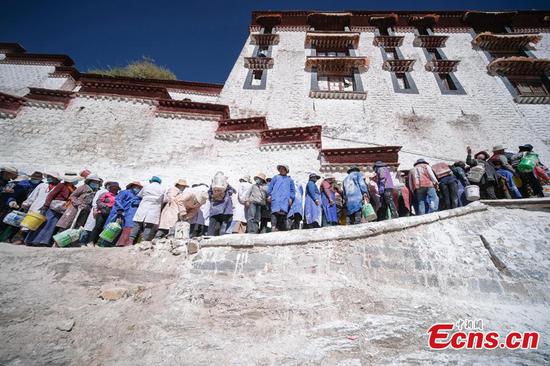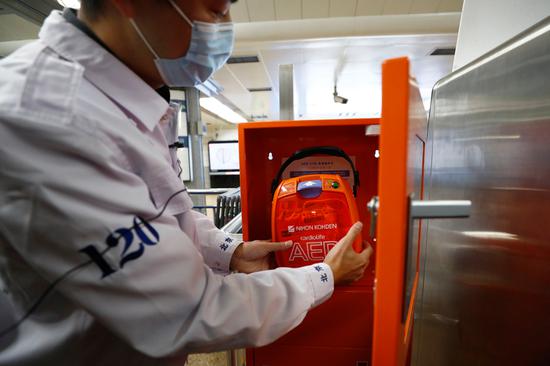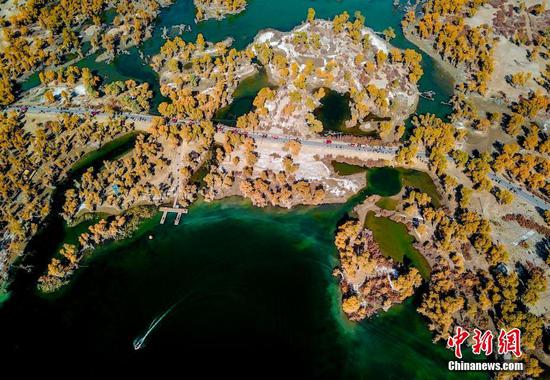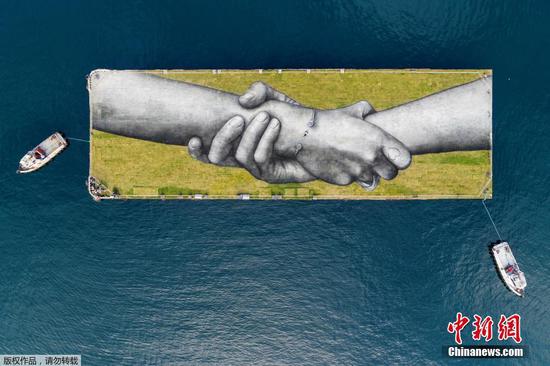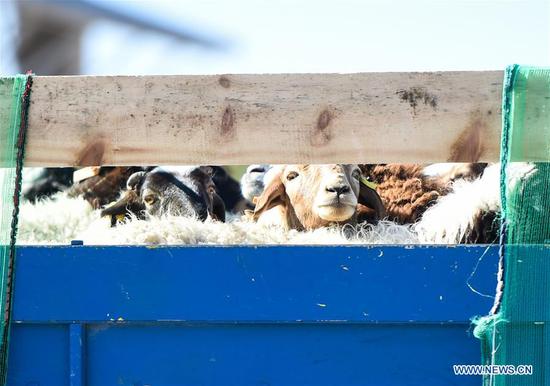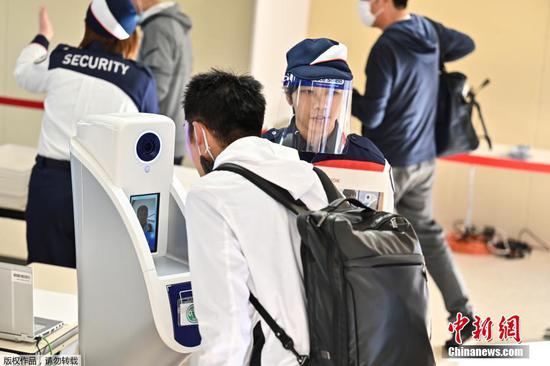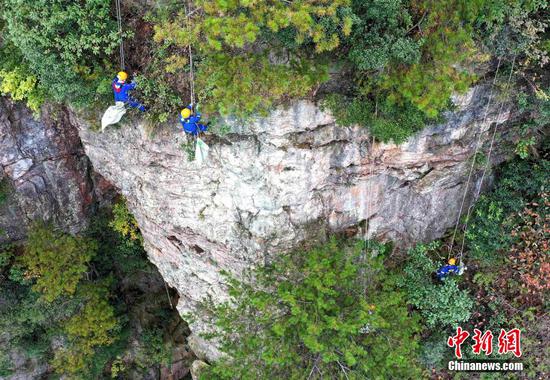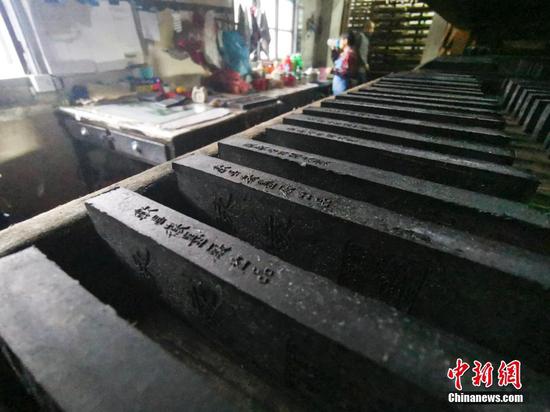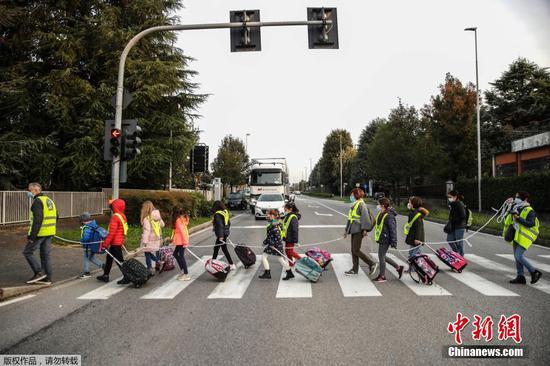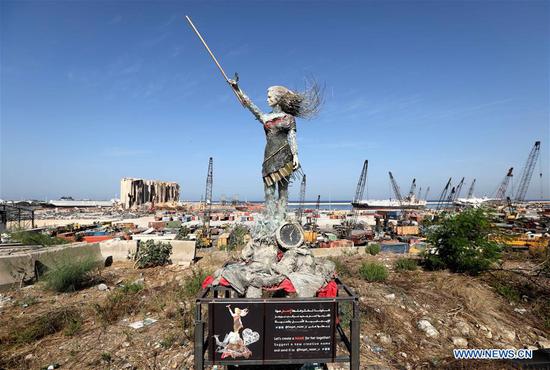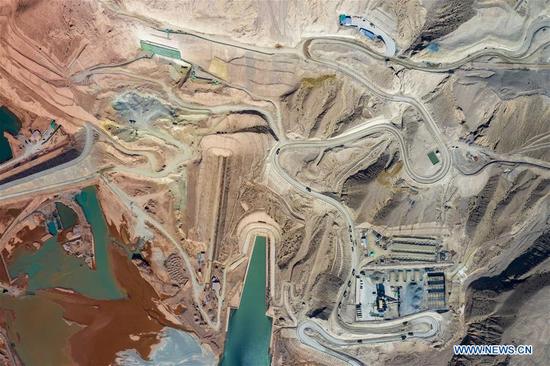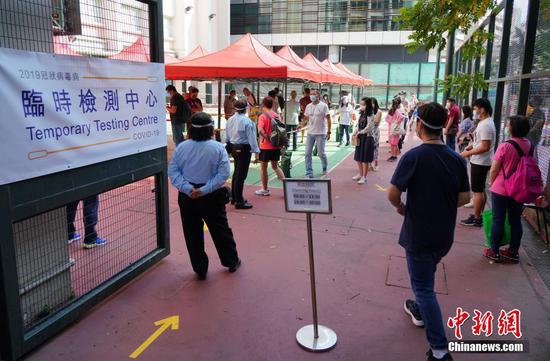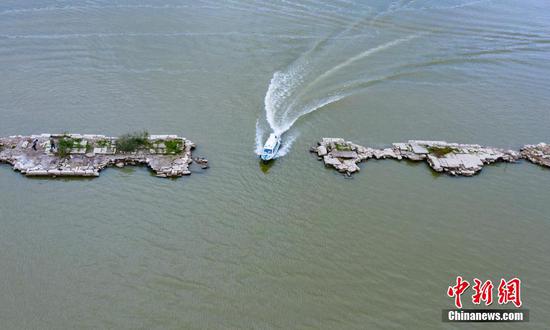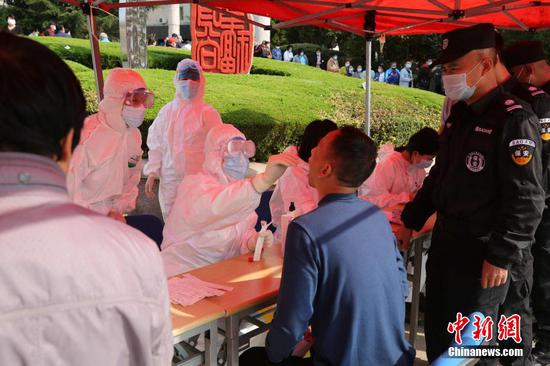
Nurimangul Obulqasim, a graduate from the Vocational Education and Training Center of Hotan County.
Some graduates of Xinjiang's vocational education and training centers have spoken out about their real lives at the centers to refute rumors and slander from some Western media outlets.
Question 1: I would like to ask the graduated trainees to share their views on the vocational education and training centers and tell us if they were "tortured"? Some overseas media claim that "the trainees were forced to have kidney and liver removal operations, and female trainees were forced to be sterilized and to shave their hair", so have any of you been forced into such surgical removal operations? Are these claims true?
Answer: My name is Nurimangul Obulqasim, a graduate from the Vocational Education and Training Center of Hotan County, and I am now the director for women's affairs of Yapchaliq village, Langru township. As a graduated trainee, I think I am the most qualified to speak on what the center was like. When I first entered the center, I saw clean buildings, beautiful gardens and lawns, bright and spacious classrooms with each being equipped with multimedia teaching facilities, which greatly facilitated our study in class. The dormitories were also well equipped with TVs, electric fans and bathrooms.
At the center, we had six classes per day from Monday to Friday with courses on the country's common language, laws, vocational skills and deradicalization. We could contact our families and enjoy weekends as well as national legal holidays. When we went home on the weekend, we were free to attend lawful religious activities. Our after-class life was also very rich and colorful. We had a library, recreational room and interest-oriented classes, in which we were taught to dance and sing. We often organized sports and cultural activities like basketball, volleyball games and artistic performances.
There was a clinic at the center with doctors on duty 24 hours a day, so whenever we had a headache, cold or any other ailment, we could go to see a doctor. We received regular health checks at the center. Our customs and habits were fully respected there, and the school canteen provided us with various and nutritious halal food for free every day. There had never been any maltreatment or physical punishment at the center, let alone brutal torture. The teachers cared for us like our own families, and took very good care of us when we were ill. They also prepared delicious cakes and sent us their best wishes on our birthdays.
As for the claim of some Western media that "the trainees were forced to have kidney and liver removal operations, and female trainees were forced to be sterilized and to shave their hair", these are all rumors and slander. I have never had my kidney or liver removed and I am very healthy now. Those media have never been to any vocational education and training center, nor have they talked to us face to face. I don't know how they could make up such lies. That is so absurd.
To be honest, I've never been to any other school better than the vocational education and training center. I learned a lot during that time and received cordial care from my teachers there. I don't know what would happen if I hadn't attended the center. It is the center that saved me from the edge of a cliff through educating and rehabilitating me, and thus saved my family.
Question 2: It is known that the trainees at the centers were people who had committed minor unlawful or criminal offenses under the influence of religious extremism. Is there any trainee who can tell us about how they got influenced by religious extremism? And what is their view on religious extremism now?
Answer: My name is Mamattursun Mamat, a graduated trainee from Yutian county. Back then, I was a fruit vendor, trading in various town bazaars and led a happy family life until religious extremism changed everything.
At that time, I got acquainted with some people who gave me a book called "What Is Heaven? What Is Hell?" to read and kept telling me "not to do business with ethnic Han people, because they are not Muslims", that "we Muslims must behave according to sharia and Islamic doctrines, and should not obey national laws", that "real Muslims must be sharply demarcated from non-Muslims" because "non-Muslims are kafirs, and we can't use anything they produce; only by expelling them through jihad can we become real Muslims and go to heaven to enjoy good life there, otherwise, we will go to hell", "Women should wear burqas, cover themselves, and never show their face in public".
Later I believed what they said and lived a life by the "standards" that they preached, just like being obsessed. I refused to talk with Han people, rejected any dealings with them, and hated to see Han customers coming into my shop. As a result, my business got worse and worse, and I became very hot-tempered. What I did had also influenced people around me. I was not only obsessed with religious extremist teachings all day long, but also kept telling my relatives those extremist ideas. I forced my wife to wear a burqa and forbade her from listening to music, singing and dancing. My wife could not bear all this, so she often quarreled with me, and we were almost going to divorce. And I thought the meals my mum cooked were not Muslim, because she didn't make five prayers a day. And I haven't eaten what she made or visited her for almost a year. My relatives and friends were afraid of my behavior.
At the vocational education and training center, I learned laws and regulations, national religious policy and religious knowledge. Gradually, I came to know what true Islam is and recognized the ugly face of extremism. Islam teaches its believers friendship, peace and justice, while those religious extremists were talking nonsense and asked us to deem non-Muslims as our enemies and even made up lies that "one can enter heaven if he launches jihad against kafirs". Now I have realized that I was used by the extremists as cannon fodder, that their unspeakable real purpose was to create conflict and hatred between us and other ethnic groups. If I hadn't been to the center, I might have been poisoned more deeply and become a terrorist. Looking back now, I feel scared about the possible consequence and regretful for my ignorance.
Now I can clearly see through extremism. My wife and I have made up. We are much closer and love each other more than before. My parents have also forgiven me. I have started a new life. At the center, I learned the country's common language and mobile phone repair skills, with which I opened a mobile phone repair shop. At the beginning, I did not have the money to start my own business, but our community workers helped me out after they got to know my business plan. I got a subsidized loan of 100,000 yuan with a guarantor, thus my problem was solved. Now I have a phone repair shop in the high street in the county seat. I can make more than 10,000 yuan a month and my life is getting better and better.









